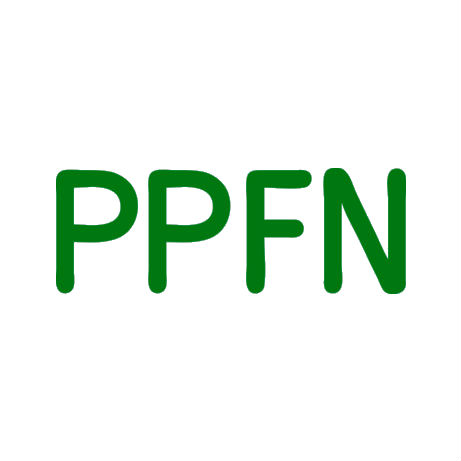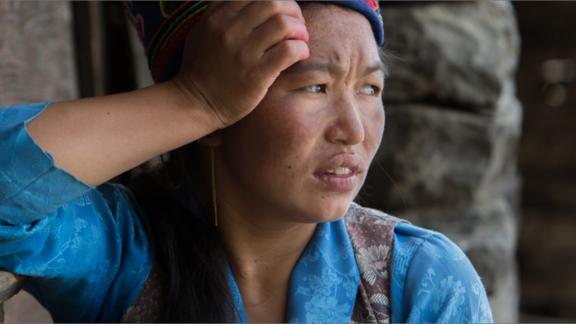

| 31 March 2016
Planned Parenthood Association of Sierra Leone
The Planned Parenthood Association of Sierra Leone (PPASL), established in 1959, works on a range of serious sexual and reproductive health (SRH) issues to improve people's health and quality of life. A key focus is to improve access to maternal health care, to reduce the risk of maternal and infant death. PPASL accesses the community through 5 service points, 12 workplace outreach projects, and 3 youth centres, via a 40-strong permanent staff team, backed by nearly 300 volunteers, 9 community-based distributors (CBDs) and a Youth Action Movement membership of 150. There is a 90% prevalence of female genital mutilation (FGM) in the country, and finding ways to handle the attendant psychological and physical trauma is one of the organization’s major challenges. Much of PPASL’s work is directed towards behaviour change communication (BCC) among community leaders, police and army personnel and Muslim and Christian groups. Safe motherhood, family planning, and the sensitisation of young people to SRH concerns are also central to the direct services which PPASL provides. The Member Association works in partnership with government health and development ministries and the Sierra Leone Armed Forces Hospitals. Non-governmental organization (NGO) partners include the Reproductive Health Service, CHASL, MSSL, National AIDS Secretariat/SHARP and the Marie Stopes Society. PPASL receives financial support from UNFPA, UNICEF, UNAIDS, the Global Fund for HIV/AIDS, Plan International, MOHS & RH UNIT, Marie Stopes Society, SL Red Cross Society and Action Aid. Contacts Website: www.ppasl.org Facebook: https://www.facebook.com/groups/454639337890032/

| 31 March 2016
Planned Parenthood Association of Ghana
Ghana is a country which has deep-rooted cultural norms, and structural barriers that perpetuate poor sexual and reproductive health. These include high risks of maternal mortality, high numbers of sexually transmitted infections, including HIV, and low levels of contraceptive use. The Planned Parenthood Association of Ghana (PPAG) was set up in 1967 to provide family planning services to the people of Ghana. Over the years, its work has expanded to cover a whole range of sexual and reproductive health (SRH) services. Today, in addition to basic family planning support, PPAG provides maternal and child health care, infertility management, and voluntary counselling and testing (VCT) for sexually transmitted infections (STIs) including HIV and AIDS. It also provides other SRH services (for example, programmes for the management of erectile dysfunction). PPAG’s operation depends on a team of 103 staff, over 1,000 volunteers, 300 peer educators, 551 community-based distributors (CBDs) and a Youth Action Movement membership of 810 young people. PPAG's delivers services and programmes through 1,356 service points, including 11 permanent clinics, 54 mobile clinics and over 1,000 community-based service points (CBSs). PPAG works with a huge roster of partners, right across government in health, education, HIV and AIDS, youth, and population planning departments. Its civil society networks include over 15 non-governmental organizations. It receives financial support from the Japanese International Cooperation Agency, the Japanese Organization for International Cooperation in Family Planning, UNFPA, the Programme For Appropriate Technology in Health (PATH), the African Youth Alliance (AYA), the Big Lottery Fund (BLF) of UK, DANIDA, the French Embassy, the UK’s Department for International Development (DfID), UNICEF and GTZ. Contacts Website: www.ppag.org.gh Facebook: https://www.facebook.com/Planned-Parenthood-Association-of-Ghana-PPAG-258152110962577/ Twitter: https://twitter.com/ppagghana

| 31 March 2016
Planned Parenthood Association of Zambia
The Planned Parenthood Association of Zambia (PPAZ) was created in 1972. Then, it was dedicated to the promotion of family planning services. Over the years, it has evolved into a major service provider and advocacy body, with significant input into government policy on sexual and reproductive health (SRH) issues. Services offered include family planning, voluntary counselling and testing (VCT) for HIV, the treatment of sexually transmitted infections (STIs), antenatal and post-natal care, emergency contraceptive provision, laboratory tests, and screening. PPAZ refers clients on for additional services including prevention of mother-to-child transmission (PMTCT), antiretroviral treatment and home-based care. The organization operates 3 static clinics, 11 mobile units and 10 community-based services (CBSs). It has a full-time staff of 34, backed by 1,300 volunteers which include over 200 community-based distributors (CBDs) and 398 peer educators. In total, PPAZ runs 229 service points. PPAZ places a strong emphasis on HIV and AIDS prevention and treatment: as the statistics show, HIV prevalence rates are exceptionally high in Zambia. PPAZ has worked intensively on integrating gender and empowerment perspectives into HIV prevention. It has undertaken behaviour change communication projects directed at young people, both in and out of school settings, and it’s taken similar projects out to rural communities. PPAZ partners extensively with non-governmental organizations (NGOs), particularly those involved in youth and HIV and AIDS work. It receives financial support from Care international, UNICEF, the Japanese Organisation for Cooperation in Family Planning (JOICEP), Forum RFSU and IPPF’s Japan Trust Fund. Contacts Website: www.ppaz.org.zm Facebook: https://www.facebook.com/groups/137992098191/

| 31 March 2016
Planned Parenthood Federation of Nigeria
As the statistics show, Nigeria faces considerable sexual and reproductive health (SRH) challenges. Established over 25 years ago, the Planned Parenthood Federation of Nigeria (PPFN) is one of the country’s most experienced SRH organizations and nationally, it delivers around 10% of all family planning services. Its work extends to voluntary counselling and testing (VCT) in HIV and AIDS, antenatal and post-natal care, post-abortion care, infertility diagnosis and counselling, and education and counselling on sexually transmitted infections (STIs) including HIV and AIDS. PPFN’s network of service delivery points is substantial: it has over 2,300 distinct service points. This includes 68 permanent clinics, 1,558 associated clinics and 27 community-based services (CBSs). The team consists of 110 permanent staff, over 750 volunteers and a Youth Action Movement membership of 350. Working together, they deliver a phenomenal number of sexual health services. PPFN partners closely with the Nigerian government to deliver services and providing technical guidance on policy development and implementation. It works in collaboration with other non-governmental organizations (NGO) and with private sector companies including The Central Bank of Nigeria, the National Agency for the Control of AIDS, Allied Products Plc and Nigeria Breweries. PPFN receives financial support from the UNDP, the Global HIV/AIDS Initiative, Pathfinder Nigeria, and IPPF’s Japan Trust Fund.

| 31 March 2016
Reproductive Health Uganda
The people of Uganda face urgent sexual and reproductive health (SRH) issues, with high prevalence of HIV and AIDS and unmet needs for contraception presenting some of the most immediate and life-threatening risks. Reproductive Health Uganda (RHU), formerly the Family Planning Association of Uganda, was established in 1957. It now provides services in 29 of the country’s districts through 768 service points: 17 static clinics, 74 mobile facilities, 35 associated clinics and a network of hundreds of community-based distributors/community-based services (CBDs/CBSs). RHU's comprehensive range of services include family planning, the prevention and treatment of HIV and AIDS, the diagnosis of sexually transmitted infections and post-abortion care. The work is led by a full-time staff of 19, supported by nearly 4,000 volunteers. These include 56 community-based distributors, 118 peer educators and a Youth Action Movement which has nearly 1,000 members. An estimated 98% of RHU's clients are poor, marginalized, socially excluded and/or under-served. Target groups include internally displaced persons, young women in conflict-affected areas, sex workers, hawkers, saloonists, bicycle taxi operators and maids. RHU undertakes high level advocacy work. At present, advocating for policies and government action to end female genital mutilation (FGM) is one of its top priorities. RHU runs training schemes for other non-governmental organizations (NGOs) and health professionals. RHU representatives sit on the government’s SRH advisory board and RHU has played a critical role in shaping, developing and implementing policies on gender, adolescent reproductive health, domestic relations, safe motherhood, and private partnerships for health. RHU provides technical assistance to IPPF Member Associations (MAs) in Swaziland, Sierra Leone, Tanzania, Namibia and Rwanda. RHU works with an immense range of NGOs and private sector organizations and it receives funding and support from over 20 different donors based locally, regionally, nationally and internationally. The organization is a national convenor: bringin together a broad range of agencies in Uganda which are engaged in campaigning and delivering services to coordinate work and synthesize efforts within the country for maximum impact. Contacts Website: www.rhu.or.ug Facebook: https://www.facebook.com/rhuganda Twitter: https://twitter.com/RHUganda

| 31 March 2016
Uzazi na Malezi Bora Tanzania
Chama cha Uzazi na Malezi Bora Tanzania (UMATI) UMATI (Chama cha Uzazi na Malezi Bora Tanzania (UMATI) was established in 1959 and became a full IPPF Member Association in 1973. Since then, it has developed a comprehensive range of sexual and reproductive health (SRH) services for the Tanzanian people. UMATI operates 33 services points which include 13 permanent clinics and 19 community-based distributors/community-based services (CBDs/CBSs). UMATI’s services are maintained and delivered by 120 permanent staff, 120 peer educators and a youth action movement membership of 250. UMATI also runs an extensive programme of home-based care and support for people living with HIV and AIDS (PLWHA). Voluntary counselling and testing (VCT) is a central part of UMATI’s HIV and AIDS prevention and treatment work. The organization is also highly active in promoting screening services and providing infertility diagnosis and counselling. UMATI collaborates closely with and/or receives funding from the Ministry of Health and non-governmental organizations (NGOs) such as Youth Incentives, AMREF, the Japanese Organization for International Cooperation in Family Planning (JOICFP), GTZ, SIDA, Youth Incentives and AMREF. Website: www.umati.or.tz
Pagination
- First page
- Previous page
- …
- 3
- 4
- 5








